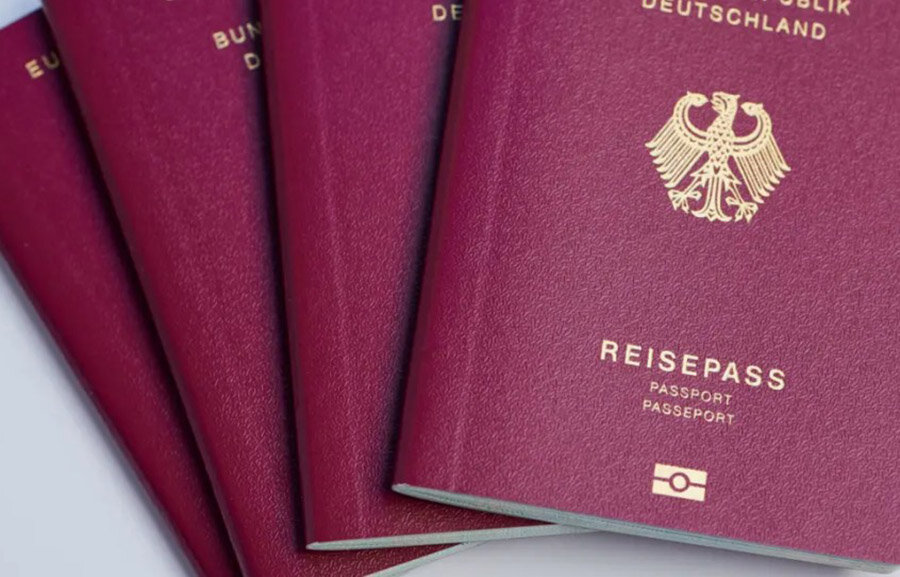Draft Law to Repeal Germany’s Fast-Track Citizenship Submitted to Bundestag

A draft law aiming to abolish Germany’s fast-track citizenship route after three years of legal residence has been submitted to the Bundestag. The proposal was initiated by Interior Minister Alexander Dobrindt and reflects the CDU/CSU-SPD coalition’s shift toward stricter migration policies, according to Iamexpat.de.
Background: 2024 Reform Eased Citizenship Access
The previous government — a coalition of the SPD, Greens, and FDP — adopted a new citizenship law in March 2024, which took effect in late June. It reduced the required residence period from 8 to 5 years. For those who demonstrated strong integration, citizenship could be granted after just 3 years — requiring employment, financial independence, C1-level German proficiency, active civic participation, and strong references.
The law also allowed children born to foreign parents to naturalize if one parent had lived in Germany for 5 years. It became permissible to retain original citizenship — previously only possible for EU and Swiss citizens. Only working, tax-paying foreigners could apply. Welfare recipients and criminals were excluded.
At the time, analysts estimated that between 8 and 12 million foreigners were eligible for naturalization. In 2023, Germany granted citizenship to 200,000 people — a 31% increase year-on-year, marking the highest figure in decades. Most new citizens came from Syria, Turkey, and Iraq. In 2024, amid political shifts, the number fell to 122,882.
Coalition Agreement and New Legislative Push
The CDU and CSU had long pledged to reverse the “flawed reform”, and on April 9, they included the repeal in their 144-page coalition agreement with the SPD. Chancellor Friedrich Merz also vowed to crack down on illegal migration and declared that Germany would reject border entry even from asylum seekers.
Beyond migration, the agreement included proposals for reforming the debt brake, cutting taxes from 2028, introducing voluntary military service, and reducing international expenditures.
Suspension of Fast-Track Citizenship and Family Reunification
In May, the draft law to repeal fast-track naturalization was submitted. Minister Dobrindt stated its goal was to “significantly reduce pull factors” for migration to Germany. It also proposes a temporary suspension of family reunification and would deny subsidiary protection to migrants without formal refugee status for two years — despite previous allowances. Currently, about 350,000 people in Germany hold such status.
The proposal must pass the Bundestag and then the Bundesrat, which represents the interests of the German federal states.
Turkish Community Response and Expert Concerns
Hekay Sofuoglu, President of the Turkish Community in Germany, told RND that the repeal would have limited effects: “It affects only a few, and they’ll still be eligible after two more years.” However, he warned it would reduce migrants’ motivation for civic engagement and volunteering.
Sofuoglu also accused Dobrindt of aligning too closely with the far-right Alternative for Germany (AfD) party.
Some experts argue that this isolationist shift may harm Germany’s long-term development — especially amid a looming labor shortage. The German Economic Institute forecasts a shortfall of up to 7 million workers by 2035. Meanwhile, the economy entered a recession in early 2025, weakening demand for skilled labor and prompting layoff warnings from major employers.
What Remains from the 2024 Reform?
Key provisions — such as the 5-year residence threshold and the acceptance of dual citizenship — remain in place. However, the new government has made its priorities clear: security, control, and reducing migration numbers.
Подсказки: Germany, citizenship, migration law, CDU, SPD, fast-track, naturalization, family reunification, asylum, 2024 reform, Dobrindt








